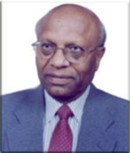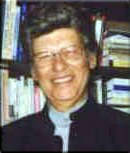 |  |  |
Inauguration Speech

Professor Cromwell Crawford,
Director ASJNA
New Delhi, June 5, 2005
Members of the Class of 2005 of the International Summer School for Jain Studies, welcome to India! We congratulate you as the vanguard of other scholars who will follow in your steps in years to come, and we honour your love of learning.
In India the search for knowledge is incumbent upon every human being. The most important knowledge is spiritual wisdom, which both enlightens the intellect while it elevates the spirit and fosters good will. In the words of the Dhammapada, “A disciple in training will investigate the well-thought path of virtue, even as an expert garland-maker picks flowers.” And for a Jain seeker after knowledge, there are three things that occasion sorrow: If there be any subject of which he or she has not heard, and cannot get to hear of it; if he or she hears of it, and cannot get to learn it; if he or she has learned it, and cannot get to carry it out in practice.
All religions distinguish between intellectual study and the apprehension of spiritual knowledge. As an academic programme, our only endeavour here is intellectual study; but this is not to doubt or deny the apprehension of spiritual knowledge. In Jainism, sensory and rational knowledge are indeed valid forms of knowledge, though they are considered indirect. The Tattvarthasutra 1.19-29 states:
Knowledge is of five kinds, namely: sensory knowledge, scriptural knowledge, clairvoyance, telepathy, and omniscience. These five kinds of knowledge are of two types: the first two kinds are indirect knowledge and the remaining three constitute direct knowledge. In sensory know…there is only the apprehension of indistinct things….But clairvoyance, telepathy, and omniscience is direct knowledge; it is perceived by the soul in a vivid manner without the intermediary of the senses or the scriptures.
So far your encounter with Jainism has been through books, libraries, and classrooms. Now that has changed. You are in the land of Mahavir, and you can see Jainism, you can hear Jainism, you can touch it, taste it, smell it -- in gardens and groves, in art and architecture, in song and dance, and among people and places. Most importantly - YOU WILL FIND JAINISM IN YOURSELF! Jainism is not alien to life, and all there is to life is in Jainism.
If this project be likened to constructing a building, we the organizers have simply assembled a clumsy heap of bricks and mortar; it is for you young scholars to take the material and give it shape, so that in 8-weeks it begins to looks life a temple of learning. One thing about Indian temples - they are never finished, so you have unwittingly made this summer programme into a life-long project!
Let me tell you a secret about India, and I speak as one whose British family came to these shores in 1761: you may leave India, but India will never leave you. For better or for worse, you are stuck! You will return home, taking India to Montreal, to Vermont, to California, and to Hawaii. What will be the consequences? For one thing: Jainism is an ancient religion, yet it is a religion struggling to be born - born among new people and places, propitious to its myriad potentialities. Who knows - the next Mahavir may be sitting in this class!
Finally, my sincere thanks to Dr. Sulekh Jain who brought me into this programme and has caused me endless dukkha; but seeing you in this assembly has turned dukkha to sukha. Thanks also to all donors without whose generous gifts none of this would be possible, and to all volunteers for serving with tan, man, and dhan. Dhanyavad.
Cromwell Crawford